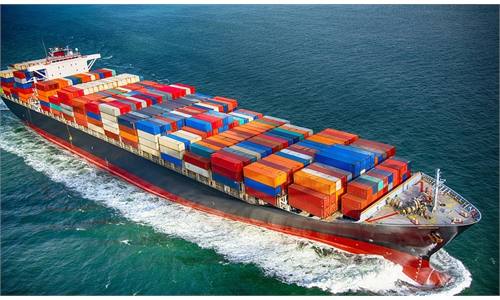
RCEP. Photo: VCG
China's process to ratify the Regional Comprehensive Economic Partnership (RCEP), beginning in December 2020, has been smooth, and the government aims to complete it within six months, Ministry of Commerce (MOFCOM) spokesperson Gao Feng said in Beijing on Thursday.
As required by RCEP stipulations, China is going to revise some rules guiding tariffs and country-of-origin issue to ensure the fulfillment of China's duty to reduce tariffs once the agreement is ratified and comes into effect, Gao said.
Various Chinese departments have meted out duty lists in keeping to the RCEP lines so that all the opening moves and rule-based obligations could be fully carried out, he added.
In addition, relevant training job related to the trade deal will be organized. MOFCOM will provide online courses related to goods, services, investment, rules of origin and customs facilitation on January 18-19 to help local governments, companies and intermediary organizations to become familiar with the RCEP rules.
Last November, China and 14 other economies signed the world's largest trade deal to form a free trade zone in the Asia-Pacific region that will encompass one-third of the global economy, in what Chinese experts and officials call a historic win for multilateralism that would help the regional and global economies cope with the COVID-19 pandemic.
Thursday also saw the release of statistics of China's foreign trade for 2020. According to Li Kuiwen, spokesperson of China's General Administration of Customs, trade between China and the other 14 members of the RCEP, hit 10.2 trillion yuan ($1.58 trillion) in 2020, up 3.5 percent year-on-year and accounting for 31.7 percent of China's total foreign trade.
ASEAN became China's largest trade partner with bilateral trade surging 7 percent despite the pandemic. Japan and South Korea, China's fourth- and fifth-ranked trade partners, saw their trade with China up 1.2 and 0.7 percent, respectively.
However, the world's second-largest economy's trade with Australia dropped 0.1 percent amid a bilateral stalemate in 2020. Trade with New Zealand was down 0.4 percent.
Global Times

